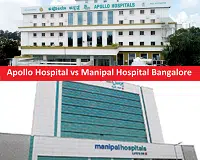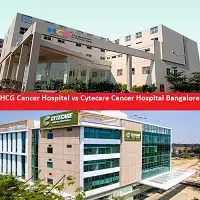Liver Transplant and Biliary Sciences: Conditions and Treatments
Acute Liver Failure (ALF)
When your liver suddenly loses its capacity to function, you experience acute liver failure. The majority of the time, liver failure progresses gradually over several years. However, in acute liver failure, liver failure appears within a few days.
The primary treatment objective for liver failure brought on by long-term degeneration can be to preserve the portion of the liver that is still working. A liver transplant is necessary if this is not possible. Thankfully, liver transplantation is a routine treatment with a high success rate at Max Hospital.
Alcoholic Liver Disease
Alcohol is the substance that is most commonly abused globally, and excessive consumption of alcohol is the main factor in liver damage. The liver, neurological system, cardiovascular system, gastrointestinal system, muscles, and reproductive system are all impacted by alcohol consumption.
Long-term alcohol usage is also linked to an increased risk of liver, mouth, pharynx, food pipe, and other cancers. Total abstinence from alcohol and healthy nutrition are typically advised in cases of acute alcoholic hepatitis, allowing the condition to slowly improve. However, sometimes it worsens even after you quit drinking alcohol, leading to cirrhosis. Cirrhosis cannot be treated. Only a liver transplant is an option.
Hepatitis A
A viral liver condition known as hepatitis A can have minor to serious health effects. Direct contact with an infected individual or consumption of contaminated food or water are the two main ways that the hepatitis A virus is transmitted. It is related to liver inflammation (inflammation, irritation, and edema).
The best treatments for the illness are improved cleanliness and the hepatitis A vaccine. Hepatitis A doesn’t have a specific treatment. After an infection, symptoms may take weeks or months to completely go. Therapy aims to keep patients comfortable and maintain a healthy nutritional balance, including replacing lost fluids from vomiting and diarrhea. The best approaches to fight hepatitis A are through improved sanitation, food safety, and vaccine. Almost everyone produces protective levels of antiviral antibodies within a month of receiving just one dose of the vaccination.
A single dose of the vaccine given within two weeks of virus interaction provides protective effects even after exposure to the virus.
Hepatitis B
The hepatitis B virus is what causes hepatitis B, the most prevalent liver illness in the world. After entering the body, the hepatitis B virus moves through the blood to the liver. It clings to the liver cells there and grows there. Although the patient may not be experiencing any issues at this time, the body’s immune system reacts to the virus multiplying. If not identified and treated early, hepatitis B infection can result in cirrhosis (liver scarring), liver failure, or even liver cancer. Treatment is not required in those who are immune and have normal LFTs.
People who have a chronic infection but no liver damage do not need therapy, but they do need to be closely watched. The person should think about receiving hepatitis B therapy, though, if they have liver damage. It is important to contact a gastroenterologist or hepatologist before making the difficult decision of when to begin treatment.
Hepatitis C
Direct blood-to-blood contact is how hepatitis C is transmitted. Sharing needles and other items used to inject medications, hormones, steroids, vitamins, or any other substance into the body is the most prevalent way for people to contract hepatitis C. Washing your hands is crucial to lowering your chances of contracting hepatitis C as well as other infections.
It’s crucial to keep in mind that hepatitis C often takes a long time to damage the liver and that many people never experience symptoms. The good news is that 70% (7 out of 10) of those with genotype 1 of hepatitis C can be cured of the virus with the use of medications. About 70–90% of those with genotype 2 or 3 respond to treatment (7 to 9 people out of 10). Interferon, ribavirin, and a protease inhibitor are three medications (together referred to as combination therapy) used to treat hepatitis C.
Liver Cirrhosis (CLD)
Liver cirrhosis is a condition that steadily destroys good liver tissue and replaces it with scar tissue, ultimately impairing the liver’s ability to function. Scar tissue slows down the liver’s ability to handle medications, hormones, nutrients, and naturally occurring poisons. It also inhibits blood flow through the liver. Additionally, it slows down the liver’s ability to make proteins and other compounds. There are specific lifestyle modifications that can help all patients with liver cirrhosis, such as:
- Quit consuming alcohol.
- Eat a diet low in salt.
- Consume a healthy diet.
- Obtain vaccinations against pneumococcal pneumonia, hepatitis A, hepatitis B, and influenza (if recommended by your doctor).
Liver Cancer
Hepatocellular cancer, or liver cancer, is a cancer that develops within the liver. It is referred to as liver metastases if the cancer first develops in another section of the body before spreading to the liver. Liver cancer may also develop from tumors that start in the colon, lungs, breast, pancreas, stomach, and other organs and move to the liver via the bloodstream. India’s Delhi is home to Max Hospitals, which offers the best liver cancer care. An entire liver is surgically removed and replaced with a healthy one during a liver transplant.
It is a lengthy process that is split into two categories:
-
Deceased Donor Liver Transplantation (DDLT)
Here, the patient’s damaged liver is replaced out for a healthy liver from a deceased donor, replacing the patient’s damaged liver. A patient must undergo a variety of tests before becoming eligible for DDLT so that the medical professionals can assess whether the patient is transplant-eligible. Once the tests are finished, patients are added to the liver transplant waiting list.
-
Living Donor Liver Transplantation (LDLT)
In this situation, a family member or friend donates a portion of their liver to the patient with liver disease. The diseased liver is removed from the patient and replaced with a healthy liver, which subsequently enlarges to its usual size. It is the preferable option when a DDLT is not practical and the patient requires an urgent transplant.







